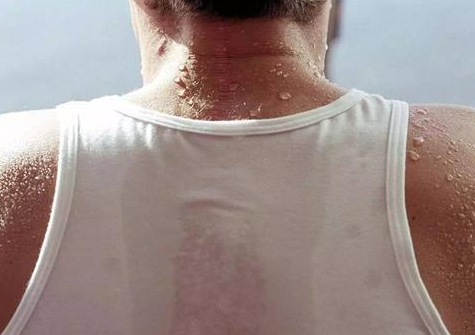
Most of us are familiar with the sharp, pungent scent of honest sweat after a hard workout or a stressful day. It’s a normal, human smell. But what happens when that familiar odor is replaced by something else—something distinctly and unnervingly sweet? It might smell vaguely like maple syrup, overripe fruit, or even nail polish remover.
This is not a sign of a new soap or something you ate. This is a profound metabolic signal. If your sweat smells unusually sweet, your metabolism may be switching into a dangerous state of crisis known as ketoacidosis.
To understand why, we need to take a quick look under the metabolic hood.
Your Body’s Two Fuel Tanks
Think of your body as a hybrid vehicle with two primary fuel tanks.
- Tank A: Glucose (Sugar). This is the premium, easy-to-burn fuel. You get it from the carbohydrates in your food. To use it, your body needs a key—a hormone called insulin.
- Tank B: Fat. This is the reserve tank, used for long-term energy storage.
Under normal circumstances, your body runs smoothly on glucose from Tank A. But when it can’t access that fuel—almost always due to a critical lack of insulin, as seen in uncontrolled Type 1 Diabetes and sometimes in advanced Type 2 Diabetes—it panics. The “check engine” light flashes, and your metabolism makes a desperate, emergency switch: it starts burning fat from Tank B at a breakneck speed.
The Sweet Smell of Metabolic Crisis
This process of burning fat for emergency fuel is called ketosis. It produces acidic chemicals called ketones as a byproduct. One of the primary ketones is acetone.
And acetone has a very distinct, sweet smell. It’s the same substance found in many nail polish removers.
When your body is producing ketones at a low, manageable level—such as when on a very low-carbohydrate ketogenic diet—the smell might be faint. But when the switch is thrown in a diabetic crisis, ketone production goes into overdrive, flooding your system. This overwhelming flood of ketones makes your blood dangerously acidic, a condition called ketoacidosis.
Your body, in a desperate attempt to expel these toxins, starts pushing the acetone out through any means possible—your breath (causing a fruity smell) and your sweat (causing that unusually sweet odor).
Why This is a Medical Emergency
That sweet-smelling sweat is not just a curiosity; it is the visible—or rather, smellable—tip of a life-threatening iceberg. Diabetic ketoacidosis (DKA) is a full-system metabolic failure that requires immediate emergency care. The sweet sweat is often accompanied by other severe symptoms:
- Extreme thirst and a very dry mouth
- Frequent urination
- Nausea and vomiting
- Abdominal pain
- Confusion or difficulty concentrating
- Rapid, deep breathing as the body tries to blow off the acid
If left untreated, DKA can lead to diabetic coma and death.
What to Do If You Notice the Scent
- Do Not Ignore It. This is not a “see your doctor next week” symptom. This is a “go to the emergency room or urgent care immediately” symptom.
- If You Are Diabetic, check your blood sugar. If it is dangerously high (often over 240 mg/dL), use a home blood ketone test strip if you have one. Any reading of ketones is a sign to call your doctor or go to the ER.
- At the Hospital, doctors will confirm the diagnosis with a simple blood test to measure your blood sugar and ketone levels and begin immediate treatment with fluids and insulin.
A sudden, sweet smell to your sweat is one of your body’s most dramatic and specific alarm bells. It is the scent of your metabolism screaming for help, signaling that it has run out of its primary fuel and is consuming itself in a last-ditch effort to survive. Heeding this fragrant warning instantly can be the single most important decision you make, one that truly saves a life.